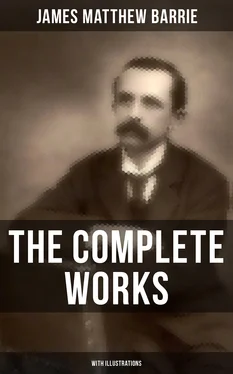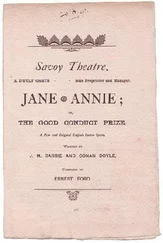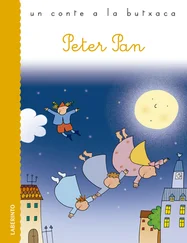"I do not need to be told how Dr. Smith, the fashionable physician, was precipitated down that area the other day; but what I do ask is, why should he be taken and all the lady doctors left?
"Their degrees are as good as his. You are too 'manly,' you say, to arrest their course. Is injustice manliness? We have another name for it. We say you want the pluck.
"I suppose every one of you has been reading a very able address recently delivered at the meeting of the Social Science Congress. I refer to my friend Mrs. Kendal's paper on the moral aspect of the drama in this country.
"It is a powerful indictment of the rank and file other professional brothers and sisters, and nowhere sadder, more impressive, or more unanswerable than where she speaks of the involuntary fall of the actor into social snobbishness and professional clap-trap.
"I do not know how the paper affected you. But since reading it I have asked in despair, how can this gifted lady continue to pick her way between the snares with which the stage is beset?
"Is it possible that the time may come when she will advertise by photographs and beg from reporters the 'pars' she now so scathingly criticises? Nay, when I look upon the drop scene at the St. James's Theatre, I ask myself if the deterioration has not already set in.
"Gentlemen, is this a matter of indifference to you? But why do I ask? Has not Mrs. Lynn Linton another article in the new 'Nineteenth Century' that makes her worthy your attention? They are women, and the sex is outside your sphere."
It was nearly twelve o'clock when Mrs. Fawcett finished her address, and the society had adopted the good old rule of getting to bed betimes. Thus it was afterwards that Andrew learned how long and carefully the society had already considered the advisability of giving women equal rights with men.
As he was leaving the chambers the president slipped something into his hand. He held it there until he reached his room.
On the way a man struck against him, scanned him piercingly, and then shuffled off. He was muffled up, but Andrew wondered if he had not seen him at the meeting.
The young Scotchman had an uneasy feeling that his footsteps were dodged.
As soon as he reached home he unfolded the scrap of paper that had been pushed into his hand. It merely contained these words—
"Cover up your neck."
Table of Contents
On the following Tuesday Andrew met the president by appointment at the Marble Arch.
Until he had received his final instructions he was pledged not to begin, and he had passed these two intervening days staring at his empty fireplace.
They shook hands silently and passed into the Park. The president was always thoughtful in a crowd.
"In such a gathering as this," said Andrew, pointing an imaginary pistol at a lecturer on Socialism, "you could hardly go wrong to let fly."
"You must not speak like that," the president said gently, "or we shall soon lose you. Your remark, however, opens the way for what I have to say. You have never expressed any curiosity as to your possible fate. I hope this is not because you under-estimate the risks. If the authorities saw you 'letting fly' as you term it, promiscuously, or even at a given object, they would treat you as no better than a malefactor."
"I thought that all out yesterday," said Andrew, "and I am amazed at the society's success in escaping detection."
"I feared this," said the president. "You are mistaken. We don't always escape detection. Sometimes we are caught—"
"Caught?"
"Yes, and hanged."
"But if that is so, why does it not get into the papers?"
"The papers are full of it."
Andrew looked incredulous.
"In the present state of the law," said the president, "motive in a murder goes for nothing. However iniquitous this may be—and I do not attempt to defend it—we accept it as a fact. Your motives may have been unexceptionable, but they hang you all the same. Thus our members when apprehended preserve silence on this point, or say that they are Fenians. This is to save the society. The man who got fifteen years the other day for being found near St. Stephen's with six infernal machines in his pockets was really one of us. He was taking them to be repaired."
"And the other who got ten years the week before?"
"He was from America, but it was for one of our affairs that he was sentenced. He was quite innocent. You see the dynamiters, vulgarly so called, are playing into our hands. Suspicion naturally falls on them. He was our fifth."
"I had no idea of this," murmured Andrew.
"You see what a bad name does," said the president. "Let this be a warning to you, Andrew."
"But is this quite fair?"
"As for that, they like it—the leading spirits, I mean. It gives them a reputation. Besides, they hurt as well as help us. It was after their appearance that the authorities were taught to be distrustful. You have little idea of the precautions taken nowadays. There is Sir William Harcourt, for instance, who is attended by policemen everywhere. I used to go home from the House behind him nightly, but I could never get him alone. I have walked in the very shadow of that man, but always in a company."
"You were never arrested yourself?" asked Andrew.
"I was once, but we substituted a probationer."
"Then did he—was he—"
"Yes, poor fellow."
"Is that often done?"
"Sometimes. You perhaps remember the man who went over the Embankment the night we met? Well, if I had been charged with that, you would have had to be hanged."
Andrew took a seat to collect his thoughts.
"Was that why you seemed to take to me so much?" he asked, wistfully.
"It was only one reason," said the president, soothingly. "I liked you from the first."
"But I don't see," said Andrew, "why I should have suffered for your action."
For the moment, his veneration for this remarkable man hung in the balance.
"It would have been for the society's sake," said the president, simply; "probationers are hardly missed."
His face wore a pained look, but there was no reproach in his voice.
Andrew was touched.
He looked the apology, which, as a Scotchman, he could not go the length of uttering.
"Before I leave you to-day," said the president, turning to a pleasanter subject, "I shall give you some money. We do not, you understand, pay our probationers a fixed salary."
"It is more, is it not," said Andrew, "in nature of a scholarship?"
"Yes, a scholarship—for the endowment of research. You see we do not tie you down to any particular line of study. Still, I shall be happy to hear of any programme you may have drawn up."
Andrew hesitated. He did not know that, to the president, he was an open book.
"I dare say I can read your thoughts," said his companion. "There is an eminent person whom you would like to make your first?"
Andrew admitted that this was so.
"I do not ask any confidences of you," continued the president, "nor shall I discourage ambition. But I hope, Andrew, you have only in view the greatest good of the greatest number. At such a time, it is well for the probationer to ask himself two questions: Is it not self-glorification that prompts me to pick this man out from among so many? and, Am I actuated by any personal animosity? If you cannot answer both these questions in the negative, it is time to ask a third, Should I go on with this undertaking?"
"In this case," said Andrew, "I do not think it is self-glory, and I am sure it is not spite. He is a man I have a very high opinion of."
"A politician? Remember that we are above party considerations."
"He is a politician," said Andrew, reluctantly, "but it is his politics I admire."
"And you are sure his time has come? Then how do you propose to set about it?"
Читать дальше












